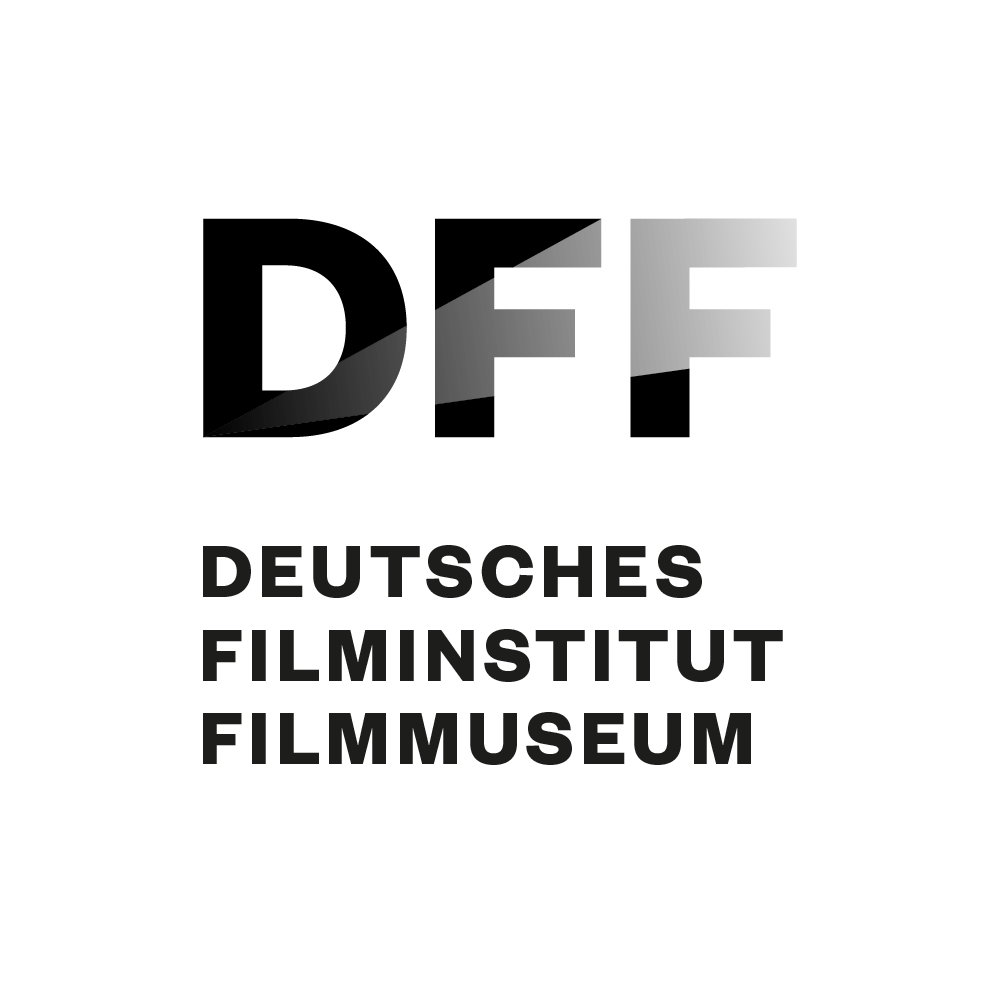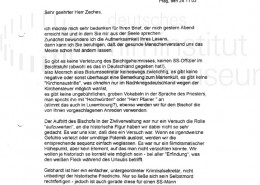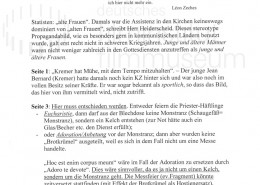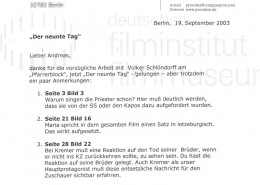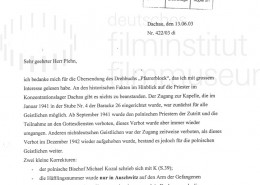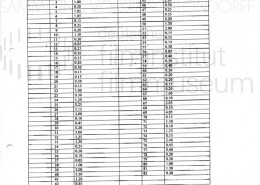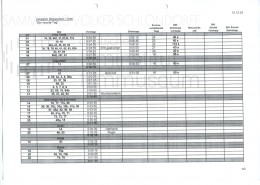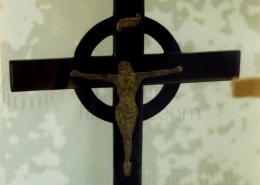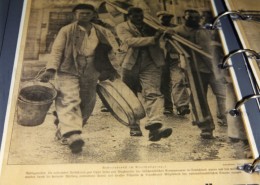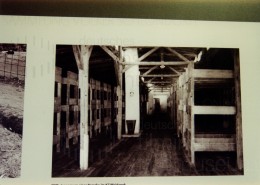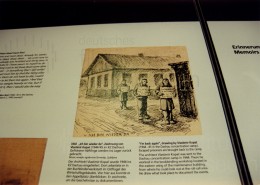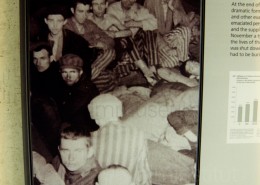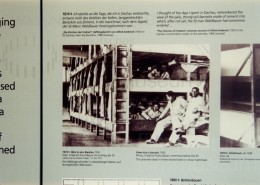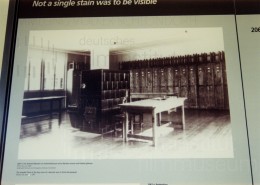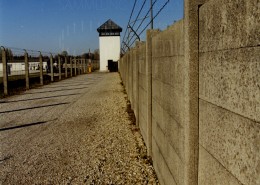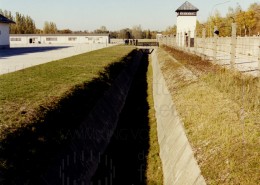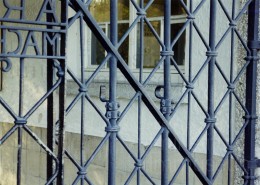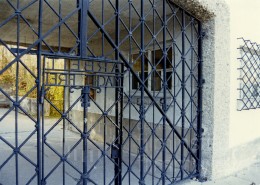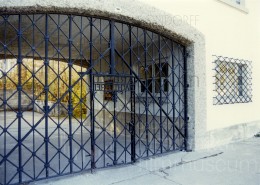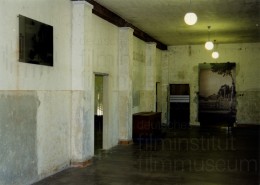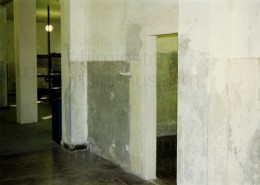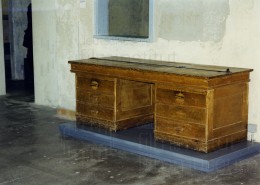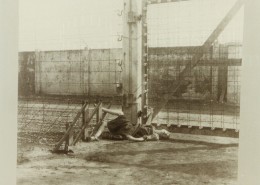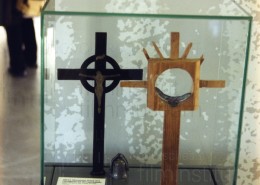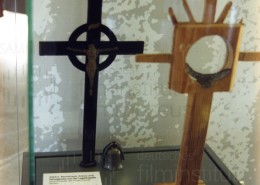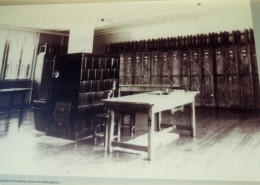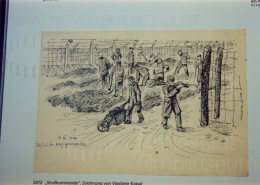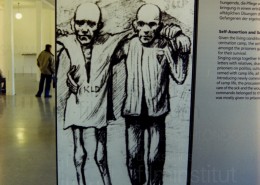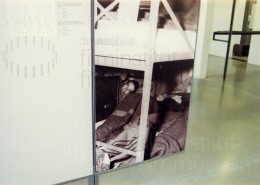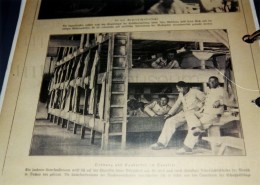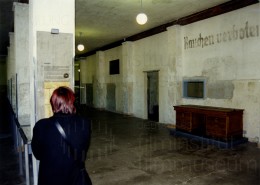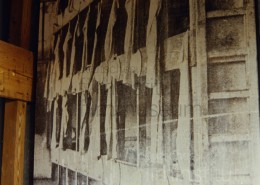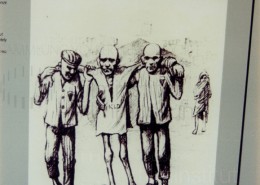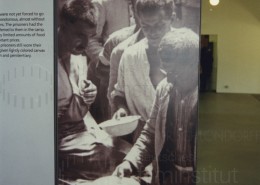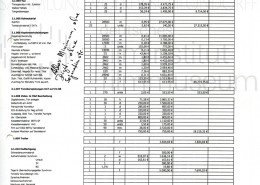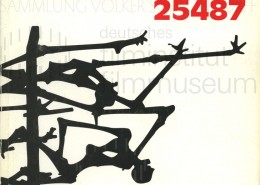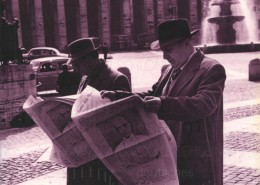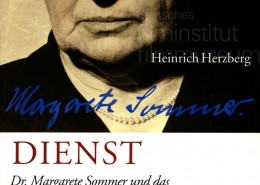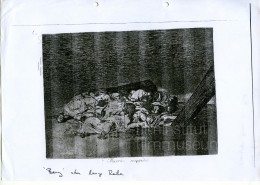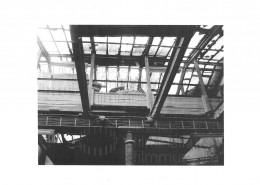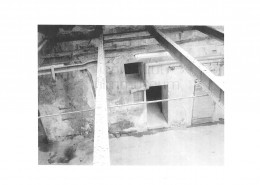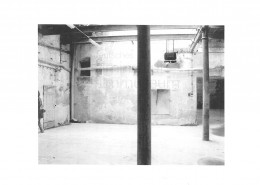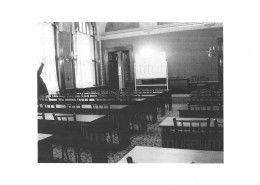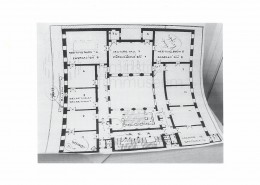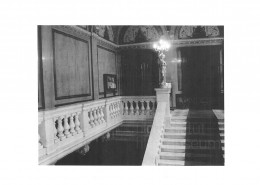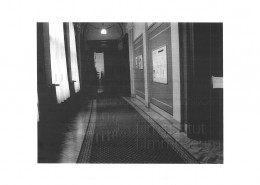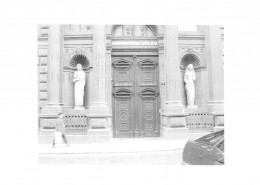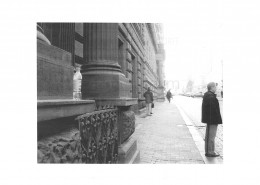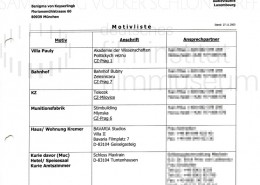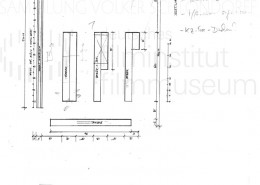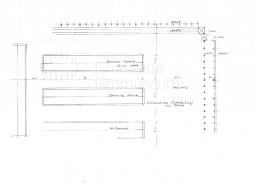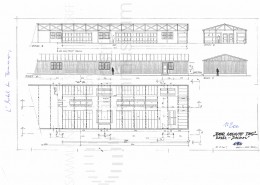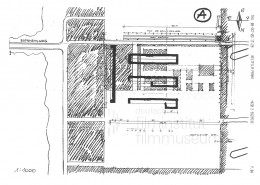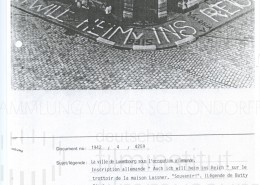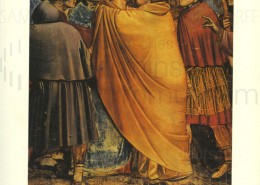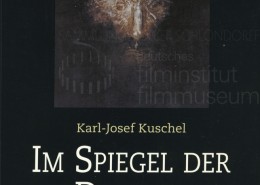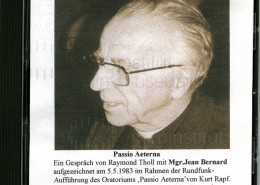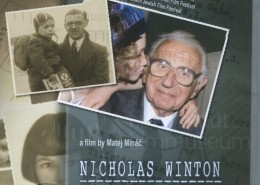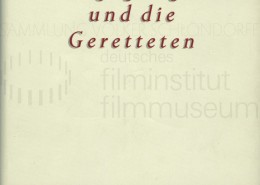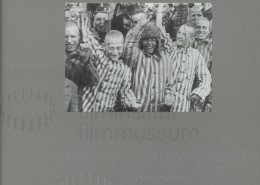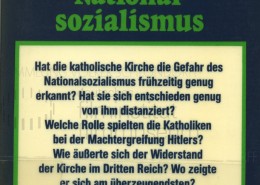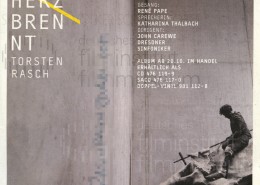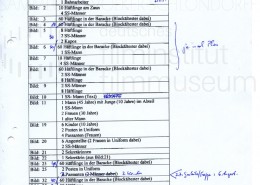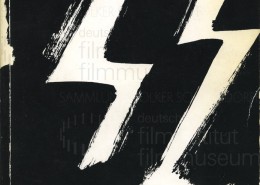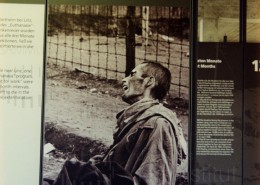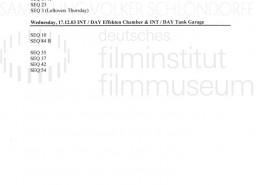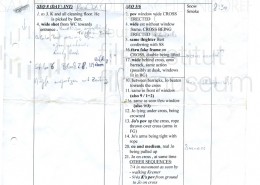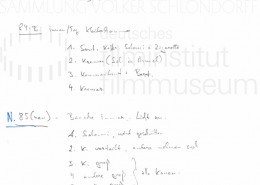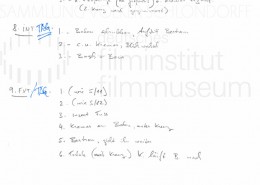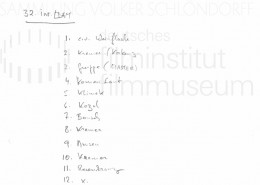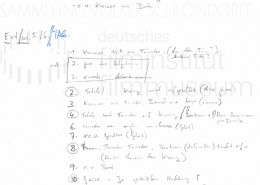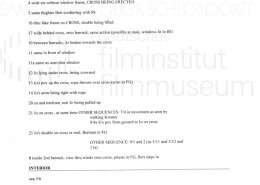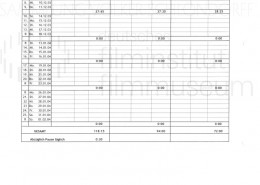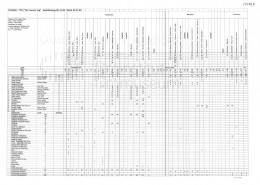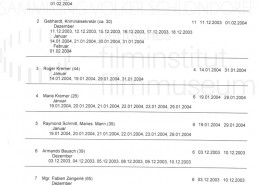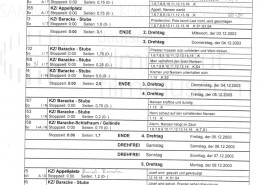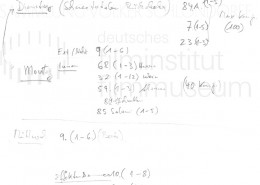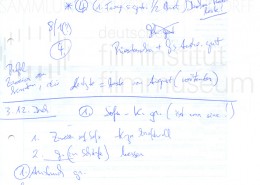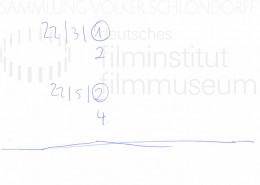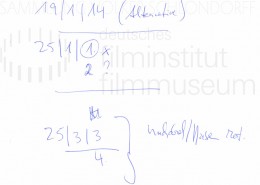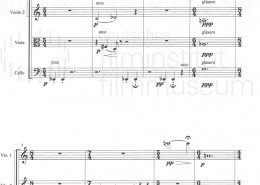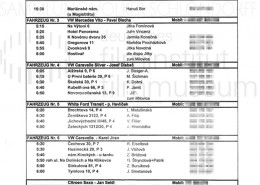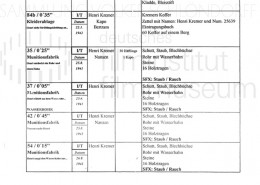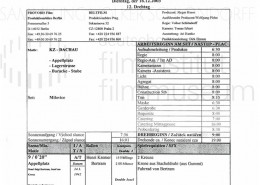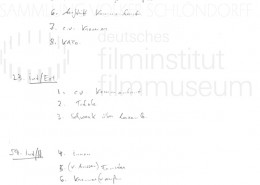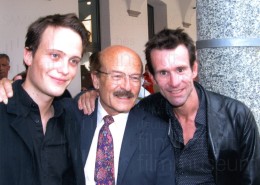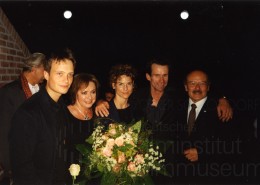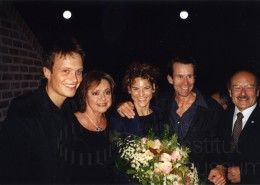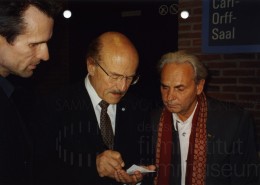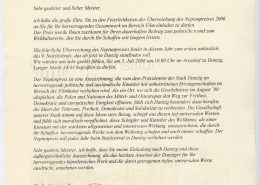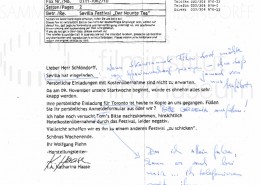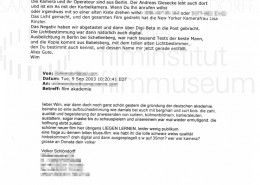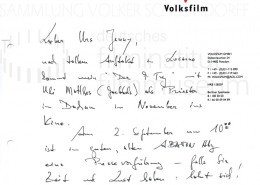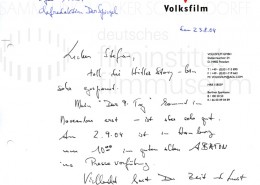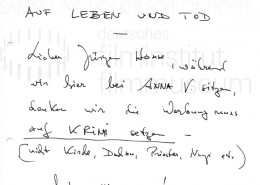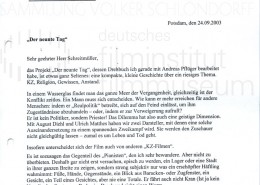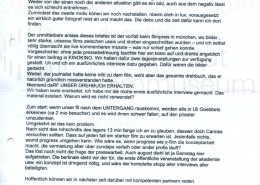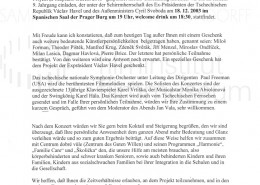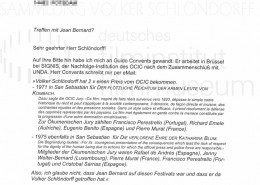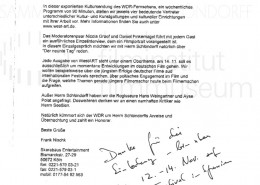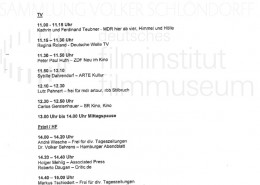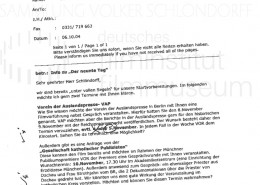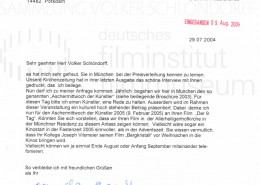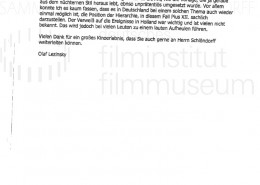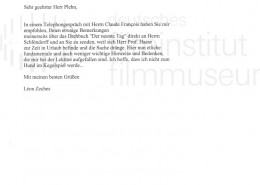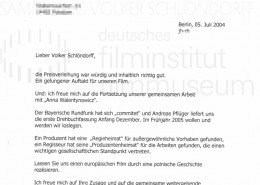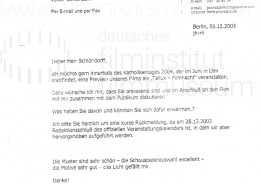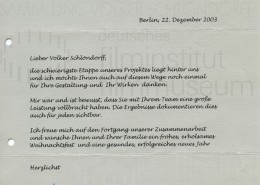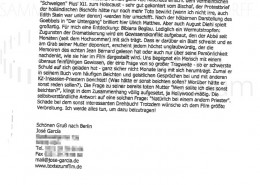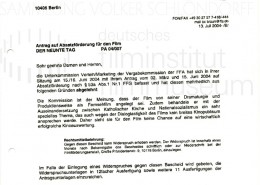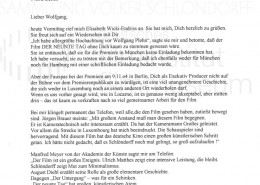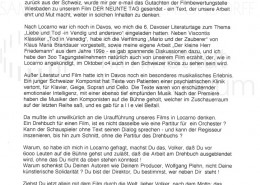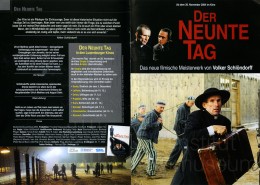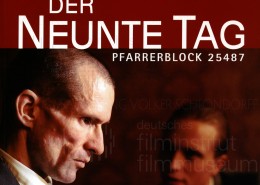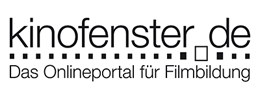Research
In preparation for THE NINTH DAY, Volker Schlöndorff not only concerns himself with Jean Bernard’s dairy, but also with the concrete historical events, including the ‘Reichskonkordat’, the treaty negotiated between the Pope and the Nazi regime in 1933. This collaboration between church and the Nazis leads to a great moral dilemma for many priests. This doesn’t only entail the courage and strength that is needed to resist Nazi ideology, but also the concomitant rejection of the Vatican’s orders. It was during this time that the so-called “priest block” was formed in the Dachau concentration camp, consisting largely of non-collaborating and non-Aryan Christians. Throughout his research, Schlöndorff’s focus narrowed on the subsequent contention between one’s own conscience and beliefs. How is the Christian faith compatible with Nazi ideology? How could such cooperation be justified?
Here the figure of Judas is highlighted as a key role. On the one hand he is considered a traitor, as the epitome of disloyalty; on the other, as someone who is willing to risk treason in order to serve a higher purpose. This partially portrays Judas in a positive light and gives him more potential to be identified with. Through this examination of the question whether the end justifies the means, the Judas dilemma becomes an integral part of the psychological duel between the priest and the Gestapo officer.
Cast
Schlöndorff finds Ulrich Matthes to be a perfect fit for the role of Abbé Henri Kremer. According to Bernard’s records, this is a man who isn’t a martyr and doesn’t perceive himself as one. Rather, it is about the plausible dispute concerning the moral dilemmas. Before filming began on the 11 November 2013, Matthes was still filming DER UNTERGANG (D 2004), in which he played the role of Reich Minister of Propaganda Joseph Goebbels. He had the struggle of having to simultaneously prepare his role of Kremer. Here he faced the particular challenge of only being able to express as little of his emotions as possible. “I did not want the meaning to be dealt with in the dialogue, only marginally. It can’t be put into words, but actors can express it” (Translated from Schlöndorff 2011, p. 451).
Kremer’s most important opposing player is Gestapo officer Gerbhardt played by August Diehl. Contrary to the frequent portrayals of ‘simple’ and ‘loud’ SS men, he is meant to be the personification of the perfect seducer: handsome and idealistic, tough and ambitious, he tries to corrupt using his intellect, and is thus particularly dangerous for Kremer.
The role of the self-sacrificing sister of the priest, Marie, is portrayed by Bibiana Beglau, who had previously worked together with Volker Schlöndorff on THE LEGENDS OF RITA (D 2000). The Luxembourg bishop, a man with unshakeable convictions, who ultimately doesn’t offer Kremer any help, is played by “a man like a rock, Hilmar Thate” (Translated from Schlöndorff 2011, p. 452).
Shooting
Due to the limiting factors of time and particularly financial resources only few days of shooting are available. Therefore Schlöndorff decides to conduct rehearsals with Ulrich Matthes and August Diehl in Berlin, to practice the scenes of the duel between Kremer and Gebhardt. During shooting later in Prague this proves to serve as good preparation. In retrospect, Schlöndorff found these difficult conditions during filming to work to his advantage, since it lead to radical artistic decisions. These manifested themselves in the numerous close-ups of Ulrich Matthes and August Diehl, where only the slightest of facial expressions can be seen allowing for acting without pathos. The camera thus takes on the role of a subjective observer, “who lacks the strength to maintain an overview” (Translated from Schlöndorff 2011, p. 454).
